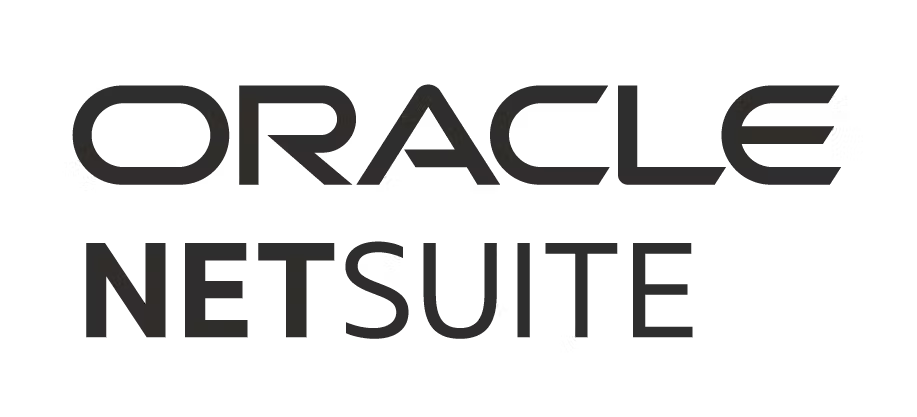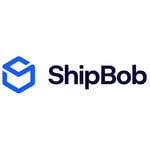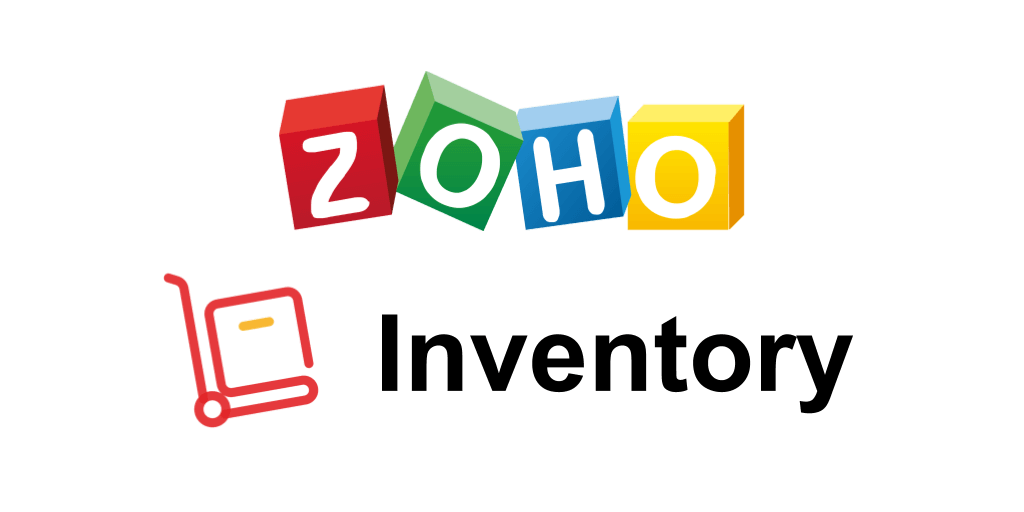Streamline inventory, enhance order fulfillment, and gain real-time insights with warehouse CRM software
Warehouse CRMs & Inventory Management Software
A warehouse management system (WMS) or warehouse management software is a digital tool for supporting, controlling, and optimizing warehousing activities. Stock and inventory management, picking and shipping, order fulfillment, and warehouse auditing are common examples of these processes.
An in-house team or a third-party logistics (3PL) business may employ WMS CRM. It typically includes features like as barcode scanning, real-time inventory records, replenishment indicators, omnichannel management, and reporting and analytics capabilities. Some warehouse management software is available as a standalone application, while others are integrated into an enterprise resource planning (ERP) or supply chain management (SCM) system.

Features specific to warehouse CRM
- Inventory management
Streamlining with barcoding or similar scanning methods reduces the chances of mistakes made by humans during the process of moving or storing products with a CRM warehouse system.
- Receiving and putaway
Using a CRM warehouse system, you can label and record the exact location of each item, ensuring you save time by avoiding unnecessary searches during the picking process.
- Pick-and-pack
CRM warehouse system allows you to simplify your workload by reducing the need for additional trips to gather products, as you'll always have a precise knowledge of their locations.
- Shipping
With a CRM warehouse system, you can simplify shipping management by automatically generating labels, forms, or assembly instructions to accompany the product.
Top Warehouse Management Systems

4.3
Dynamics 365, Microsoft's comprehensive suite of business applications, extends its capabilities to warehouse management with a robust CRM module specifically designed for optimizing warehouse operations.
4.3

ShipBob is a cloud-based WMS that provides e-commerce businesses with an end-to-end solution for managing inventory, orders, and fulfillment.
3.6

PULPO WMS is a cloud-based warehouse management system that provides businesses with real-time visibility and control over their inventory and logistics operations.
3.8

Odoo is a comprehensive business management tool that combines CRM with eCommerce, HR, production, inventory, accounting, and finance, to name just a few modules.
4.3

Linnworks is a cloud-powered tool designed to assist sellers in overseeing inventory and automating order fulfillment across various channels.
4

Cin7 Core stands out as an e-commerce management solution with a dedicated focus on simplifying inventory management. It results in significant cost savings for businesses utilizing this tool.
3.7

Infoplus is a warehouse management software that was built by fulfillment professionals. It is a full solution that has inbound and purchasing, outbound and shipping, inventory control, building blocks, custom reporting, etc.
3.6
ShipHero makes it easy to ship eCommerce with this powerful warehouse management software (WMS). This cloud-based WMS is perfect for emerging, scaling, and high-volume brands.
3.8

Hopstack is a comprehensive warehousing platform with warehouse management, order fulfillment, multi-channel order management, and shipping and dispatch tools.
3.5
What Types of Warehouse Management Software Exist?
ERP-integrated WMS
Warehouse inventory management systems are sometimes integrated into enterprise resource planning (ERP) systems. Although it may lack the capabilities of a standalone product, it will undoubtedly provide a wide range of other business activities. If it is critical to have a single system that integrates the warehouse WMS with human resources, supply chain management, and manufacturing, buyers may want to consider purchasing a product that is included in an ERP system.
Separate WMS
Best warehousing software is sold as a niche offering that provides no other supply chain capabilities. It will concentrate on inventory management and warehouse operations in particular. This would be an excellent solution for a company that does not require software that goes beyond warehouse management.
What Are the Advantages of Using Warehouse Management Software?
WMS CRM can significantly increase the efficiency of inventory management and monitoring as it moves through the warehouse. Users will receive, pick, and store products quickly and accurately as a result of improved tracking and inventory planning. Because of these improved processes, more shipments will be delivered on schedule and customers will receive their orders more rapidly.
Meet customer expectations: Shipping time is critical to the average online customer. With large e-commerce sites setting the standard with shipping in two days or less, other online e-commerce stores must follow similar to compete. Using a warehouse WMS to maximize inventory efficiency will help the organization send out more shipments on time and satisfy expanding client needs.
Save money: Warehouse inventory management software assists firms with activities such as demand forecasting. Businesses can evaluate if they need to slow down or expand production of a specific product by monitoring how much inventory is remaining of that product. Using previous data to create a forecast of predicted client demand will save the organization money in the long run.
Better labor management: WMS can significantly increase new worker onboarding as well as experienced warehouse worker efficiency. A WMS may incorporate labor management capabilities such as worker performance management, labor forecasting, KPI management, and scheduling optimization. There are tools that enable firms to set goals for their employees and offer them precise KPIs to achieve. This can be useful for rewarding employees based on their performance. On the other hand, there are excellent schedule optimization capabilities that provide warehouse workers with daily schedules and assignments. This allows them to stay on track and not waste time in the warehouse.
Who Benefits from Warehouse Management Software?
- Warehouse manager: Software for warehouse inventory enables warehouse managers to simplify daily task planning, staff management, new hire onboarding, and other organizational elements that help them manage their team's efficiency.
- Distribution center manager: Distribution center managers are in charge of stock inventory, shipping, and receiving. WMS provides distribution center managers with visibility into inventory stock levels as well as the location of incoming and outgoing shipments.
Which Businesses Should Invest in Warehouse Management Software?
- E-commerce enterprises: A WMS enables e-commerce businesses to link their online shop purchases directly to their inventory. If a consumer makes a purchase, the purchase is automatically reflected in their stock count. This helps e-commerce enterprises to precisely evaluate stock levels and determine whether they need to refill.
- Manufacturing firms: Manufacturing activities frequently incorporate a mix of premade and newly created products to make the final product. This makes inventory management for manufacturers a little more complex because specific elements are frequently dependent on other parts to combine and form a final product. As a result, manufacturers must keep a close eye on inventory levels to ensure that manufacturing runs properly.
- Food and beverage companies: A WMS is required for food and beverage companies to ensure that their inventory is always maintained fresh. These products must be delivered and sent on time to avoid spoilage on the way to the consumer. Grocery stores and wholesale food distributors are examples of such businesses.
Criteria for Choosing the Best Warehouse Management Software
Basic Functionality
These are the two key functions that should be in inventory systems for warehouses on the list:
- Possibility of receiving and storing incoming items, tracking inventory movement inside the warehouse, and monitoring stock levels.
- Connection to well-known e-commerce systems such as Shopify, BigCommerce, and WooCommerce.
Key Features
In addition to the fundamental functionalities, here are some extra significant aspects:
- Workflow management: Managing and automating parts or all of your warehouse processes, such as putaway, slotting, or cycle counting.
- Order fulfillment: Creating pick lists, managing distributors, shipping orders, managing several sales channels, and handling purchase orders.
- Multi-location management: The capacity to manage multiple warehouses and account for stock and inventory both on-premise and elsewhere.
- Labor management: Creating checklists, assigning responsibilities, and establishing standards to guarantee that employees perform their duties efficiently and consistently.
- Analytics and reporting: Dashboards to monitor performance and stock levels, as well as predictive information such as forecasting to assist you in making smart decisions.
Usability
A warehouse management system (WMS) with an easy-to-use user interface can help personnel complete activities more accurately and efficiently. However, complex and clumsy software can cause errors, delays, and dissatisfaction for both your employees and consumers.
Integrations
It's critical to choose a solution that integrates with your other SaaS platforms and apps because it can streamline your processes and eliminate app switching and complexity. I looked for WMS software that worked with the biggest e-commerce platforms, such as Shopify and BigCommerce, as well as additional sales channels, such as eBay, Etsy, and Amazon.
Legal and Regulatory Compliance
Legal and compliance considerations must be addressed while implementing warehousing platform. Check that the program complies with regional and industry-specific data management, storage, and protection standards. It is also critical to ensure that the software allows compliance with shipping and trade laws, especially if operating on a global scale. Overlooking these things can be costly and harmful to your reputation. It's not only about streamlining processes; it's also about responsible, legal business practices.
Pricing
CRM warehouse management costs vary, with some starting at roughly $30 per user per month and others costing upwards of $5,000 per month at a flat rate. Many companies provide customized pricing to match your specific business requirements. This could be advantageous for a small or large firm so that you are not paying for features that you do not use or are lacking in functionality.
FAQs
What is CRM for warehouse management, and how does it differ from traditional inventory systems?
Customer Relationship Management (CRM) for warehouse management is a specialized system that integrates customer data and interactions with the warehouse processes. Unlike traditional inventory systems, software for warehousing goes beyond simple stock tracking, incorporating customer-centric features for a more holistic approach to business operations.
How can CRM enhance customer satisfaction in warehouse management?
Software for warehousing allows businesses to better understand customer preferences, track order histories, and personalized services. This leads to improved order accuracy, faster order fulfillment, and ultimately enhances customer satisfaction through a more tailored and efficient warehouse operation.
What role does automation play in CRM for warehouse management?
Automation is a key aspect of CRM for warehouse management, streamlining various processes such as order processing, inventory tracking, and data entry. By automating day-to-day processes, businesses can reduce human errors, increase efficiency, and ensure a more seamless and error-free warehouse operation.
How does CRM help in optimizing inventory levels and preventing stockouts or overstock situations?
CRM systems for warehouse management utilize advanced analytics and real-time data to provide insights into inventory trends and customer demands. This helps businesses optimize inventory levels, reduce the risk of stockouts or overstock situations, and ultimately improve overall warehouse efficiency.
Can CRM for warehouse management integrate with other business systems and software?
Yes, many CRM systems for warehouse management are designed to integrate seamlessly with other business systems and software, such as ERP (Enterprise Resource Planning) systems, e-commerce platforms, and accounting software. This integration ensures a cohesive flow of data across various departments and enhances overall business productivity.
How does CRM contribute to a more efficient order fulfillment process in a warehouse?
CRM for warehouse management provides real-time visibility into order status, inventory levels, and customer preferences. This allows for quicker and more accurate order processing, reducing order fulfillment times and improving the overall efficiency of the warehouse. Additionally, CRM systems often include features like automated order routing and task assignment, further streamlining the order fulfillment process.
Other CRM Industries
Higher Education
Attract, sustain, and serve your students with CRM for higher education
Construction
Modernize your business and deliver projects faster with a CRM for construction.
Consulting
Conduct business from your pocket, with a CRM for consultants
Manufacturing
Improve the planning, production scheduling, and communication with a manufacturing CRM.
Real Estate
Manage properties, buyers, and sellers on a unified platform with CRM for real estate.
eCommerce
Improve customer relationships and reach new markets with CRM for eCommerce.
Small Business
CRM is an inexpensive software solution to scale your business.
SaaS Companies
Reduce churn and attract more customers with a CRM for SaaS.
Nonprofits
Raise more money, motivate volunteers, and grow strategically with CRM for nonprofits.
Retail
Add a personal touch to every shopping experience with CRM for retail.
Insurance
Reduce risk and increase profits with CRM for Insurance.
Other CRM Industries
Higher Education
Attract, sustain, and serve your students with CRM for higher education
Construction
Modernize your business and deliver projects faster with a CRM for construction.
Consulting
Conduct business from your pocket, with a CRM for consultants
Manufacturing
Improve the planning, production scheduling, and communication with a manufacturing CRM.
Real Estate
Manage properties, buyers, and sellers on a unified platform with CRM for real estate.
eCommerce
Improve customer relationships and reach new markets with CRM for eCommerce.
Small Business
CRM is an inexpensive software solution to scale your business.
SaaS Companies
Reduce churn and attract more customers with a CRM for SaaS.
Nonprofits
Raise more money, motivate volunteers, and grow strategically with CRM for nonprofits.
Retail
Add a personal touch to every shopping experience with CRM for retail.
Insurance
Reduce risk and increase profits with CRM for Insurance.

